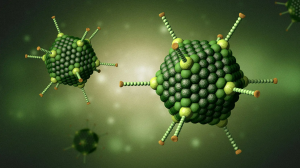Adenovirus is a type of virus that can infect humans and animals. It is responsible for various illnesses, from the common cold to more severe diseases such as pneumonia, bronchitis, and conjunctivitis. It can also cause gastrointestinal problems. Like diarrhea and urinary tract infections.
Adenovirus is a widespread virus, and it is estimated that it is responsible for up to 10 per cent of all respiratory infections in the United States. This Virus is a member of the family of viruses known as adenoviral. It is a giant virus with a diameter of around 80 to 90 nanometers. It is composed of a protein coat and a core of double-stranded DNA.
There are several types of adenovirus, each associated with a specific type of illness. The most common type of adenovirus is type 2, responsible for respiratory illnesses such as the common cold.
How does Adenovirus spread?
Adenovirus is spread through contact with an infected person or animal. Spread through contact with an infected person’s saliva, mucus, or other body fluids. Even it can spread through contact with contaminated surfaces, such as doorknobs, toys, and other objects. Adenovirus infection usually begins with fever, sore throat, and sometimes, a headache. Other symptoms can include a runny nose, coughing, and sneezing.
The virus Adeno can sometimes cause more severe illnesses, such as
- pneumonia,
- bronchitis,
- conjunctivitis, and
- ear infections
Symptoms can last anywhere from a few days to several weeks. It depends on the type of infection and the severity of the symptoms. Adenovirus is usually treated with antibiotics, but in some cases, antiviral medications may be necessary.
Vaccines are available for some types of adenovirus. But they are ineffective in preventing all types of the virus. Adenovirus is a widespread virus; most people will experience at least one infection in their lifetime. However, it is essential to be aware of the symptoms and seek medical attention. If they become severe or last for more than a few days. With prompt treatment, most people will make a full recovery.
How severe is adenovirus?
Adenoviruses can cause mild to severe illnesses in people of all ages. While the symptoms may range from mild to severe, Most cases of adenovirus infection are mild and resolve within a few days without medical treatment. However, some infections can be more severe and even life-threatening, especially in people with weakened immune systems.
Serious complications can include: pneumonia, acute respiratory distress syndrome (ARDS), gastroenteritis, and inflammation of the brain or heart. Severe adenovirus infections may also require hospitalization for supportive care. Treatment with intravenous fluids and antibiotics. Therefore, it is essential to recognize the signs and symptoms of adenovirus infection so appropriate medical treatment can be provided when necessary.
In addition, adenoviruses are highly contagious and can quickly spread through contact with an infected person’s nose and throat secretions (e.g., saliva, mucus). Therefore, it is essential to practice good hygiene habits such as regular handwashing and avoiding contact with sick people to help prevent the spread of adenovirus infection. Vaccines are currently available to protect against some types of adenoviruses, but not all. Contact your healthcare provider for more information about adenovirus vaccine availability and whether it is right for you.
How do humans get this infection?
Humans usually become infected with adenoviruses through contact with an infected person’s nose and throat secretions, such as saliva or mucus. This can happen through close contact with an infected person (e.g., kissing, sharing drinks), touching contaminated surfaces, or breathing in droplets from a cough or sneeze of an infected person. Rarely can people become infected with adenoviruses through contact with contaminated water or food. You may also be at risk for infection if you work with animals naturally infected with the virus. Speak to your healthcare provider, if you think you may exposed to an adenovirus.
What kills adenovirus?
The only way to kill an adenovirus is by using a disinfectant containing chlorine or alcohol. Chlorine-based products are effective against various viruses; however, they may not be as effective when it comes to adenoviruses. Alcohol-based products are generally more successful at killing off the virus. Following the instructions on the product label when cleaning and disinfecting is essential. Additionally, it’s crucial to thoroughly clean and rinse any surface that may exposed to adenovirus before applying a disinfectant. This helps to ensure that all of the viruses destroyed.